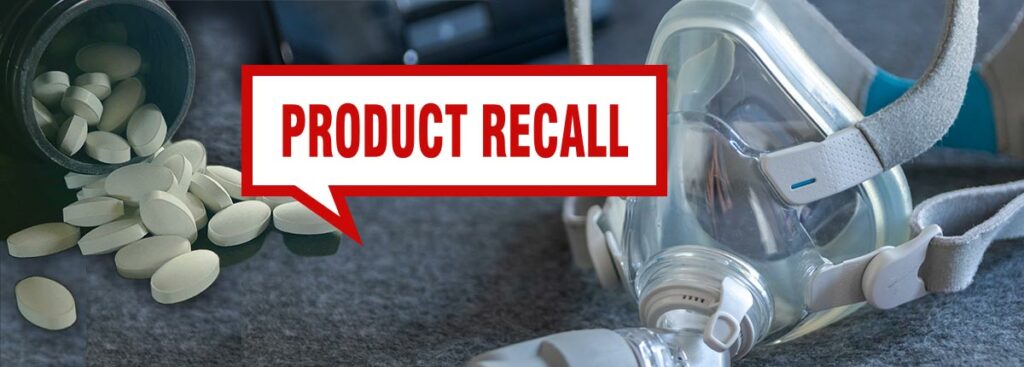No Fee Unless You Win
No Fee Unless You Win
A recall is an action taken to address a defective medical device that violates FDA law. Recalls occur when a medical device is defective, or when it could be a risk to health.
A medical device recall does not always mean that you must stop using the product, or return it to the company. A recall sometimes means that the medical device needs to be checked, adjusted, or fixed. If an implanted device (for example, a pacemaker or an artificial hip) is recalled, it does not always have to be removed. When an implanted device has the potential to fail unexpectedly, companies often tell doctors to contact their patients to discuss the risk of removing the device compared to the risk of leaving it in place.

Sometimes a company may have concerns about a group of products, but it cannot predict which individual devices will be affected. To be on the safe side, the company may recall an entire lot, model, or product line.
In most cases, a company (manufacturer, distributor, or other responsible party) recalls a medical device on its own (voluntarily). When a company learns that it has a product that violates FDA law, it does two things:
Legally the FDA can require a company to recall a device. This could happen if a company refuses to recall a device that is associated with significant health problems or death. However, in practice, the FDA has rarely needed to require a medical device recall.
If you, or someone you love, has suffered a life-changing injury as a result of a defective medical product, call Gage & Mathers now so we can help investigate the cause of your injury and discover whether others around the country are also being injured because of device manufacturers’ greed and indifference.
Currently, there are dozens of drugs, procedures, and medical devices that are considered potentially dangerous, including:
And remember our promise:
Your case, no matter how big or how small, will be managed by a lawyer—not a paralegal, secretary, or receptionist. You will be represented from start to finish by a lawyer who has been certified by the State of Arizona as a specialist in injury and wrongful death cases. Call Gage Mathers now at (602) 258-0646, or click here to e-mail an attorney, and request a phone call back.
Personal Injury & Accident Lawyers in Arizona
Speak to one of our personal injury attorneys and learn more about the legal options for your accident claim.
If you or a loved one has been seriously injured, please fill out the form below for your free consultation or call us at (602) 258-0646
2525 E Arizona Biltmore Cir #A114, Phoenix, AZ 85016
get directions